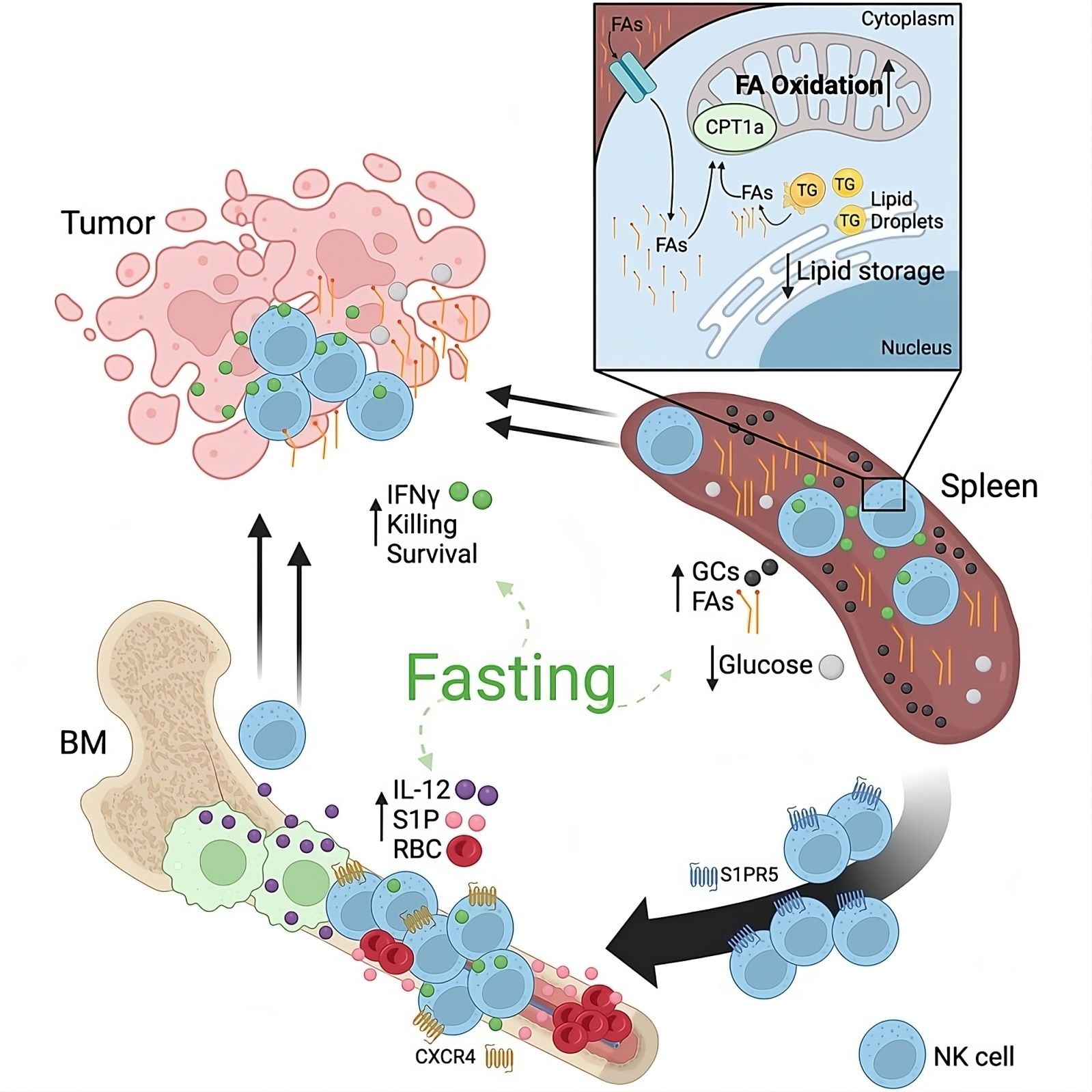Follow us on Google News (click on ☆)

NK cells are a type of white blood cell capable of destroying abnormal or damaged cells, such as those of cancer or infected by a virus, without requiring prior exposure. Unlike T cells, they do not need a previous encounter with the enemy to react.
The study, led by Rebecca Delconte and published in Immunity, demonstrates for the first time that fasting can alter the metabolism of NK cells, thereby enhancing their efficiency. Joseph Sun, one of the lead authors, explains: "Tumors are very greedy. They absorb essential nutrients, creating a lipid-rich environment that is often detrimental to most immune cells. Our study shows that fasting reprograms these NK cells to better survive in this hostile environment."
The cancerous mice in the study underwent a 24-hour fast twice a week, followed by unrestricted feeding. This regimen did not result in weight loss but had a significant impact on NK cells. Indeed, fasting led to a redistribution of NK cells in the body. Many migrated to the bone marrow, where they were exposed to high levels of Interleukin-12, stimulating their production of Interferon-gamma, a cytokine essential for anti-tumor responses. Additionally, NK cells in the spleen were reprogrammed to use lipids as an energy source.
Rebecca Delconte explains: "During each fasting cycle, NK cells learned to use these fatty acids as an alternative fuel to glucose. This optimizes their anti-cancer response since the tumor environment contains a high lipid concentration, allowing them to better penetrate and survive in the tumor thanks to this metabolic training."
Although these results are promising, further research is needed to understand if these effects also occur in humans. Neil Iyengar, an MSK oncologist specializing in diet, metabolism, and cancer, not directly involved in the study, emphasizes the importance of consulting a doctor before starting a fasting regimen, as not all types of fasting are beneficial for every patient.
Researchers are considering several avenues to translate these results from mouse models to humans. Clinical trials are already underway to assess the safety and effectiveness of fasting in combination with standard treatments. Another approach would be to develop drugs targeting the underlying mechanisms without requiring fasting. Finally, NK cells could be put into a fasting state outside the body before being administered to enhance treatment effects.